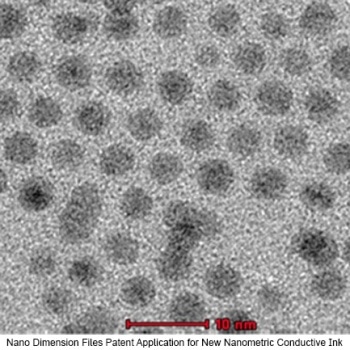Jul 18 2016
Recently, Nano Dimension Technologies filed a patent application with the U.S. Patent and Trademark Office to develop a new nanometric conductive ink based on a unique synthesis. The company is a wholly owned subsidiary of Nano Dimension Ltd., a leading developer and manufacturer in the 3D Printed Electronics domain.
 (Credit: Nano Dimension Ltd.)
(Credit: Nano Dimension Ltd.)
The new nanoparticle synthesis is capable of further reducing the size of the silver nanoparticles particles in the ink products produced by the company. The size of silver nanoparticles is as small as 4 nm when this new method is used.
The company believes that by accurately manipulating the surface properties and size of the nanoparticles, the performance of the DragonFly 2020 3D printer currently being developed by the company will be enhanced.
With this novel ink, lower melting temperatures and more complete sintering can be achieved, resulting in a much higher level of conductivity. The ink could increase the speed of printing and minimize ink usage for the 3D printing of electronics such as antennas, printed circuit boards, and others. Additionally, the ink optimizes the capabilities of the DragonFly 2020 3D printer, and could enhance the conductivity of the printed lines. The company plans to commercialize the ink products along with its 3D printers and as independent and separate products.